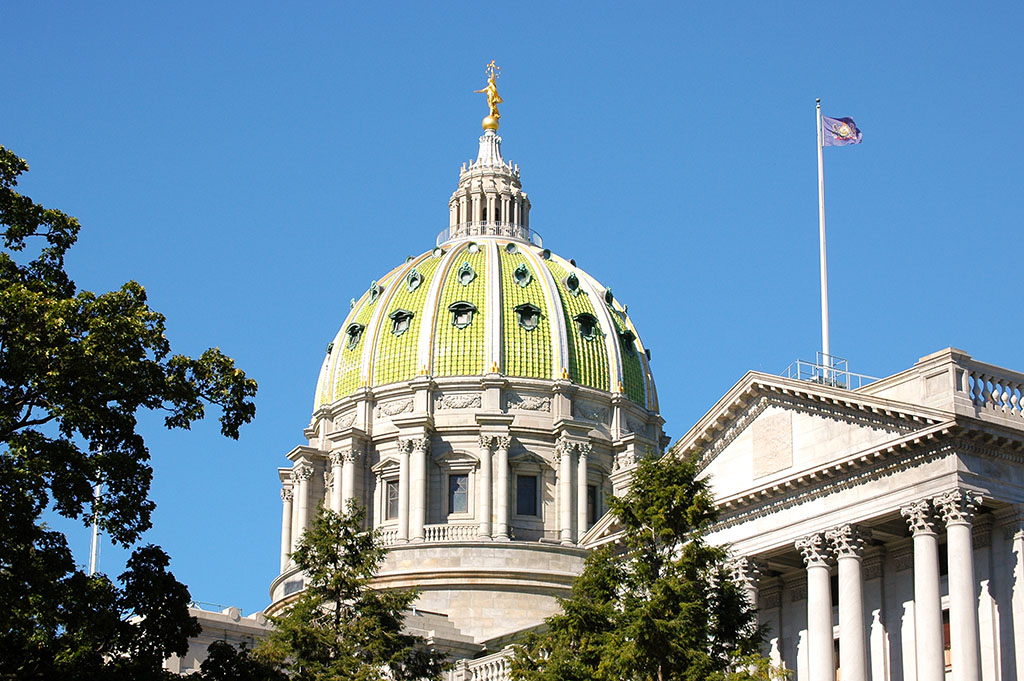The Pennsylvania General Assembly Passes Senate Bill 841
 Senate Bill 841 passed by unanimous vote in both chambers, which, among other items, provides Pennsylvania municipalities and local agencies relief from in-person quorum requirements. The Bill is expected to be signed by Governor Wolf and take effect immediately.
Senate Bill 841 passed by unanimous vote in both chambers, which, among other items, provides Pennsylvania municipalities and local agencies relief from in-person quorum requirements. The Bill is expected to be signed by Governor Wolf and take effect immediately.
Without SB 841, certain municipalities and agencies, such as Third Class Cities and Boroughs, could only have meetings via electronic or telecommunication methods if a quorum of the governing body was physically present together. Despite warnings of health officials to stay home and limit contact with other individuals as much as possible, over the past month, these municipalities and agencies have been meeting in person to conduct necessary government business. In many circumstances, these meetings were and are mandatory, as various municipal codes require regular business meetings monthly.
Section 5741 Authorizes Meetings Via Telecommunication
SB 841 amends the Health and Safety Code by adding Section 5741 to authorize any municipal or local agency, department, authority, commission, board, council, governing body, or other public body to use telecommunication devices for meetings without the necessity of a physical quorum. 35 Pa.C.S. § 5741. The public body may instead have the quorum established and business conducted solely through a remote or telecommunications mechanism, such as a conference call line or videoconference software. The only requirement is that all members of the public body AND all members of the public participating in the meeting must be able to have audio communication between all individuals available.
For sufficient public participation to occur, the public body must advertise the date and time of the remote meeting, the type of remote access (teleconference, videoconference, etc.) that will be used, and the manner in which the public may access the meeting for purposes of attendance and participation. Pursuant to Section 5741, these notices must be placed in a newspaper of general circulation and posted on the public body’s website.
These are likely also to be considered changes to regularly scheduled meetings as defined by the Sunshine Act, and therefore the notices should also be posted at the normal meeting place. Additionally, while Section 5741 does not provide a timeframe for when these notices have to be posted, a minimum of 24 hours is required under the Sunshine Act for meeting change notices.
Public Comment Through Written Submission Is Acceptable
Over the past few weeks, as municipalities have taken steps to limit public exposure in meetings, many bodies have taken steps to completely cut off public attendance at meetings and permit “public comment” through written submissions prior to the meeting. The legality of such a procedure is questionable under the Sunshine Act. However, Section 5741 explicitly permits this practice during the COVID-19 emergency, while also sanctioning the already approved practice of having the public participate in the public meeting over and through the telephonic or video conference.
Zoning and Land Use Applications
Finally, the new Section 5741 addresses already pending and new zoning and land use applications, which normally have strict time requirements for municipal consideration. For all such requests received or pending as of the date of the Governor’s disaster emergency declaration, those time periods are suspended and tolled, and will resume thirty days after SB 841 is signed by the Governor. Applicants can request to have the necessary meetings or hearings for consideration of the application, and the meeting or hearing can occur at the municipality’s discretion, so long as actual notice is sent to all affected parties.
Pittsburgh Municipal Services Attorneys
The Municipal Services Practice Group of The Lynch Law Group stands ready to provide legal advice to municipal agencies and citizens alike as local governments operate during the COVID-19 emergency. Please contact us for guidance regarding this or any subsequent legislation at (724) 776-8000.




